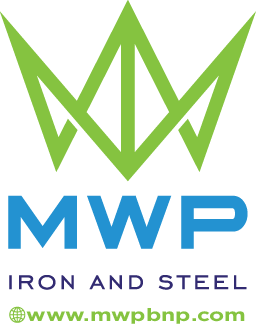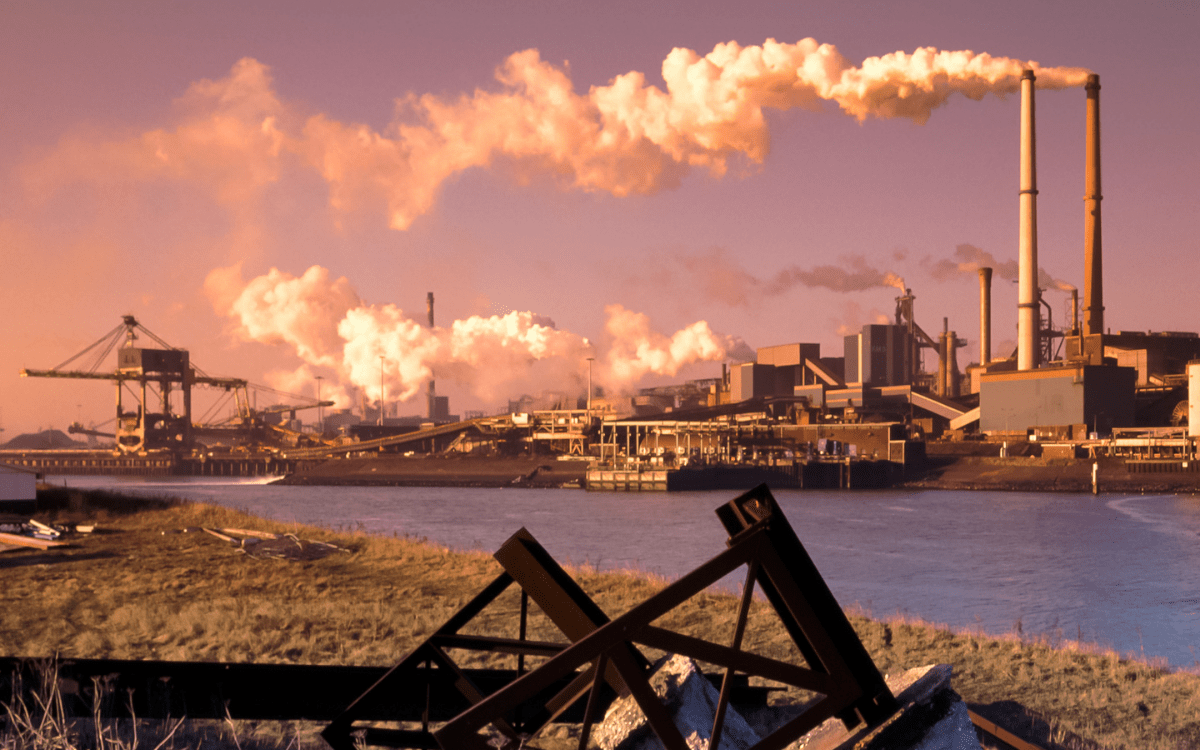Steel Price Per Ton Today In Pakistan
Steel Price Per Ton Today: Steel is one of the most widely used materials in the world, especially for construction and other industries. It is an alloy of iron and carbon, with varying amounts of other elements that give it different properties and characteristics. Steel is strong, durable, versatile, and recyclable, making it an ideal choice for various applications.
According to the World Steel Association, Pakistan produced about 3.6 million tonnes of crude steel in 2022, ranking 40th in the world. The country consumed about 9.4 million tonnes of steel in the same year, indicating a high demand for steel products. However, the steel price in Pakistan is not stable and predictable, as it depends on many factors that influence the cost of production and supply of steel.
Some of the main factors that affect the steel price in Pakistan are:
- Raw materials: The price of iron ore, coal, scrap metal, and other inputs that are used to make steel can fluctuate due to global market conditions, availability, quality, and transportation costs.
- Production costs: The cost of electricity, labor, machinery, maintenance, and other expenses that are involved in producing steel can vary depending on the efficiency, technology, and scale of the steel mills.
- Demand: The demand for steel in Pakistan is driven by the growth and development of various sectors such as construction, infrastructure, automotive, engineering, etc. The demand can also be influenced by seasonal factors, consumer preferences, and government policies.
- Supply: The supply of steel in Pakistan depends on the domestic production capacity and the imports from other countries. The supply can also be affected by factors such as transportation delays, quality issues, inventory levels, and trade barriers.
- Global market: The global market conditions can have a significant impact on the steel price in Pakistan, as the country is a net importer of steel. The price of steel in the international market can change due to factors such as supply and demand balance, competition, exchange rates, tariffs, sanctions, etc.
- Government policies: The government policies can also influence the steel price in Pakistan through various measures such as taxes, subsidies, regulations, incentives, etc. The government can also intervene in the market to stabilize or control the price of steel for strategic or social reasons.
The purpose of this article is to provide the latest information on the steel price per ton in Pakistan and its implications for various stakeholders. We will analyze the historical trends, current situation, and future outlook of the steel price in Pakistan using data from reliable sources. We will also discuss the opportunities and challenges for the steel industry and consumers in Pakistan based on the expected price movements.
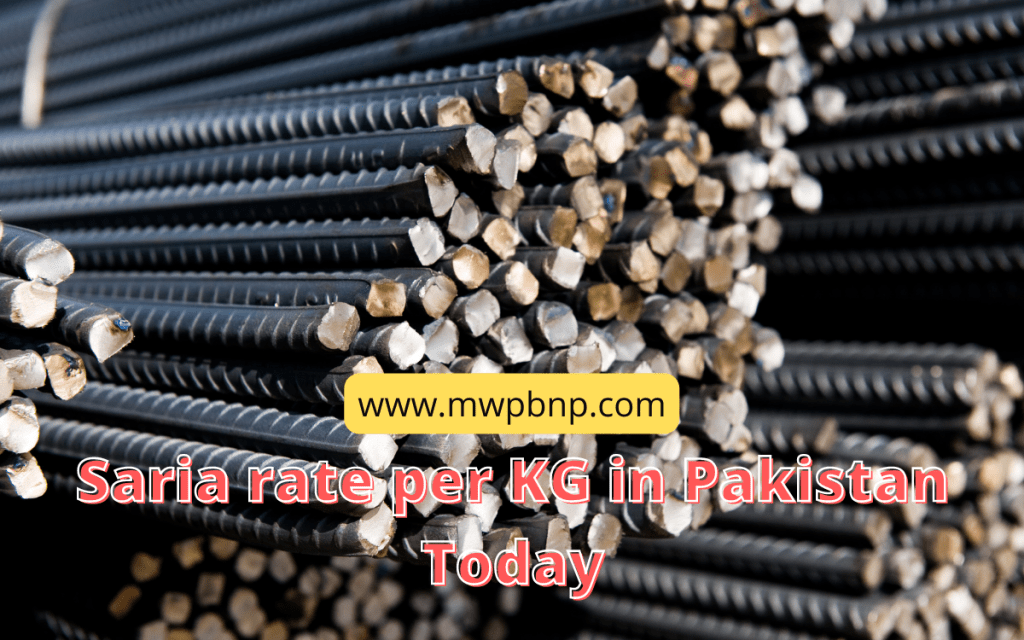
Steel prices per ton today
| Company | Price per Metric Ton | Price per KG |
|---|---|---|
| Ittehad Steel | PKR. 206,000 – PKR. 290,000 | PKR. 206 – PKR. 290 |
| Amreli Steel | PKR. 290,000 – PKR. 292,000 | PKR. 290 – PKR. 292 |
| Mughal Steel | PKR. 283,000 – PKR. 297,000 | PKR. 283 – PKR. 297 |
| Abbas Steel Industries | N/A | N/A |
| Agha Steel Industries | PKR. 286,000 – PKR. 288,000 | PKR. 286 – PKR. 288 |
| Zarea.pk | PKR. 272,000 – PKR. 274,000 | PKR. 272 – PKR. 274 |
| Pak Prices | PKR. 266,000 | PKR. 266 |
Please note that the prices may vary depending on the city or province. Also, the prices mentioned above are subject to change and may not be up-to-date. It is always recommended to check with the respective companies for the latest prices.
Steel Price Trends in Pakistan
The steel price in Pakistan has experienced significant fluctuations over the past decade, reflecting the changes in the domestic and global market conditions. The following graph shows the monthly average steel price per ton in Pakistan from January 2013 to September 2023, based on data from Zarea.
As can be seen from the graph, the steel price in Pakistan reached its highest level of PKR 315,000 (USD 1,900) per ton in June 2018, amid a strong demand for steel products and a weak Pakistani rupee. However, the steel price in Pakistan plummeted to PKR 180,000 (USD 1,080) per ton in August 2019, due to a combination of factors such as:
- Currency devaluation: The Pakistani rupee depreciated by about 40% against the US dollar from June 2018 to August 2019, increasing the cost of imported raw materials and reducing the competitiveness of Pakistani steel exports.
- Inflation: The inflation rate in Pakistan rose to 10.3% in August 2019, the highest level since November 2013, eroding the purchasing power of consumers and businesses and lowering the demand for steel products.
- Energy crisis: The energy crisis in Pakistan worsened in 2019, as the country faced severe shortages of electricity and gas, affecting the production and transportation of steel products.
- Tax reforms: The government of Pakistan introduced a series of tax reforms in July 2019, aimed at increasing the revenue collection and reducing the fiscal deficit. However, these reforms also increased the tax burden on the steel industry and consumers, adding to the cost of production and consumption of steel products.
- Import duties: The government of Pakistan imposed a 15% regulatory duty on imported flat-rolled steel products in July 2019, to protect the domestic industry from cheap imports. However, this also increased the cost of imported raw materials and intermediate goods for the steel industry.
Steel Prices in Pakistan Recover Slightly After Government Relief Measures
The steel price in Pakistan recovered slightly to PKR 210,000 (USD 1,260) per ton in December 2019, as the government announced some relief measures for the steel industry and consumers, such as reducing the sales tax rate from 17% to 14%, providing subsidies on electricity and gas tariffs, and easing some import restrictions.
However, the steel price in Pakistan faced another major shock in March 2020, when the COVID-19 pandemic hit the country and disrupted the supply and demand of steel products. The steel price in Pakistan dropped to PKR 160,000 (USD 960) per ton in April 2020, as the government imposed a nationwide lockdown to contain the spread of the virus, resulting in a sharp decline in economic activity and steel consumption.
The steel price in Pakistan gradually increased to PKR 240,000 (USD 1,440) per ton in December 2020, as the government eased some lockdown restrictions and provided stimulus packages to support the economy and various sectors. The steel price in Pakistan also benefited from a recovery in global demand and prices of steel products, especially from China, which is the largest importer and consumer of steel in the world.
The steel price in Pakistan reached a new record high of PKR 320,000 (USD 1,920) per ton in June 2021, surpassing its previous peak in June 2018. This was mainly driven by a surge in domestic and global demand for steel products amid a rapid economic recovery from the COVID-19 pandemic. The demand for steel products was particularly strong from sectors such as construction, infrastructure, automotive, engineering, etc.
Pakistan Steel Industry Receives Boost from Government Relief Measures
However, the steel price in Pakistan also faced some upward pressure from rising costs of production and imports of steel products. Some of the factors that contributed to this were:
- Raw materials: The price of iron ore, which is one of the main inputs for making steel, soared to a record high of USD 230 per tonne in May 2021, due to strong demand from China and supply disruptions from major exporters such as Australia and Brazil. The price of coal, which is another key input for making steel, also increased significantly due to supply constraints and environmental regulations.
- Production costs: The cost of electricity and gas, which are essential for operating steel mills and furnaces, also increased substantially due to rising global oil prices and domestic shortages. The cost of labor also increased due to higher wages and social security contributions.
- Import duties: The government of Pakistan raised the import duties on various steel products such as billets, bars, coils, etc., ranging from 5% to 20%, to protect the domestic industry from cheap imports and generate more revenue.
The steel price in Pakistan stabilized at around PKR 270,000 (USD 1,620) per ton in September 2023, as the demand and supply of steel products reached a balance. The steel price in Pakistan also followed the global trend of steel prices, which moderated after reaching record highs in June 2021.
The steel price in Pakistan is influenced by various factors that can change rapidly and unpredictably, making it difficult to forecast the future movements of the steel price. However, based on some scenarios and assumptions, we can provide a short-term and long-term forecast of the steel price in Pakistan in the next section.
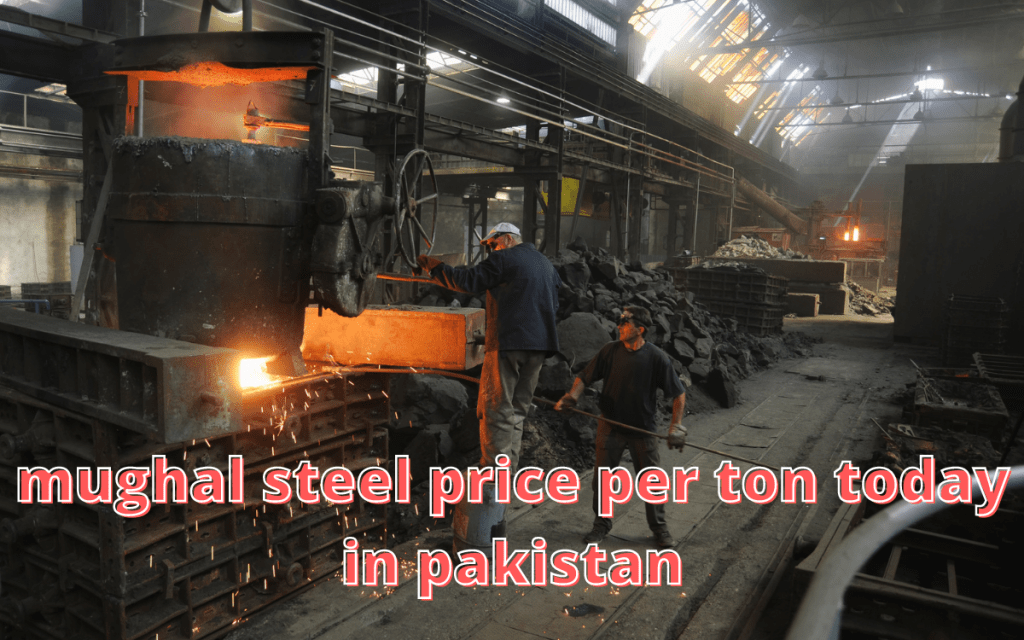
Steel Price Forecast for Pakistan
The steel price in Pakistan is influenced by various factors that can change rapidly and unpredictably, making it difficult to forecast the future movements of the steel price. However, based on some scenarios and assumptions, we can provide a short-term and long-term forecast of the steel price in Pakistan.
Short-term forecast
The short-term forecast of the steel price in Pakistan covers the period from October 2023 to March 2024, based on the current situation and expected developments in the domestic and global market. We assume that:
- The economic recovery from the COVID-19 pandemic continues at a moderate pace, with a GDP growth rate of 4.5% in 2023 and 5% in 2024.
- The vaccination program progresses smoothly, with 70% of the population fully vaccinated by March 2024.
- The political situation remains stable, with no major conflicts or disruptions.
- The exchange rate of the Pakistani rupee against the US dollar remains at around PKR 167 per USD.
- The inflation rate remains at around 8% per year.
- The global demand and supply of steel products remain balanced, with no major shocks or disruptions.
- The global price of iron ore remains at around USD 150 per tonne, while the global price of coal remains at around USD 100 per tonne.
- The government policies regarding taxes, subsidies, regulations, and import duties on steel products remain unchanged.
Based on these assumptions, we estimate that the steel price in Pakistan will increase slightly from PKR 270,000 (USD 1,620) per ton in September 2023 to PKR 280,000 (USD 1,680) per ton in March 2024. This represents an increase of about 3.7% over six months.
The main factors that will drive the increase in the steel price in Pakistan are:
- The rising demand for steel products from various sectors such as construction, infrastructure, automotive, engineering, etc., as the economy recovers from the pandemic and invests in development projects.
- The rising cost of production and imports of steel products due to higher prices of raw materials and energy.
The main factors that will moderate the increase in the steel price in Pakistan are:
- The stable exchange rate of the Pakistani rupee against the US dollar, which will reduce the impact of currency fluctuations on the cost of imported raw materials and products.
- The moderate inflation rate, which will limit the erosion of purchasing power and demand for steel products.
- The balanced global market conditions for steel products, which will prevent any significant changes in the international price and competition of steel products.
Long-term forecast
The long-term forecast of the steel price in Pakistan covers the period from April 2024 to March 2030, based on some scenarios and projections for the domestic and global market. We assume that:
- The economic growth rate of Pakistan averages at 6% per year from 2024 to 2030, driven by structural reforms, improved governance, increased investment, and enhanced productivity.
- The population growth rate of Pakistan averages at 1.8% per year from 2024 to 2030, reaching 250 million by 2030.
- The urbanization rate of Pakistan increases from 36% in 2020 to 45% in 2030, resulting in more demand for housing and infrastructure.
- The industrialization rate of Pakistan increases from 21% in 2020 to 30% in 2030, resulting in more demand for engineering and manufacturing.
- The exchange rate of the Pakistani rupee against the US dollar appreciates gradually to PKR 150 per USD by 2030, reflecting improved economic fundamentals and reduced external imbalances.
- The inflation rate of Pakistan decreases gradually to 5% per year by 2030, reflecting improved monetary policy and fiscal discipline.
- The global demand for steel products grows at an average rate of 3% per year from 2024 to 2030, driven by emerging markets such as China, India, Brazil, etc.
- The global supply of steel products grows at an average rate of 2.5% per year from 2024 to 2030, driven by technological innovation and environmental regulation.
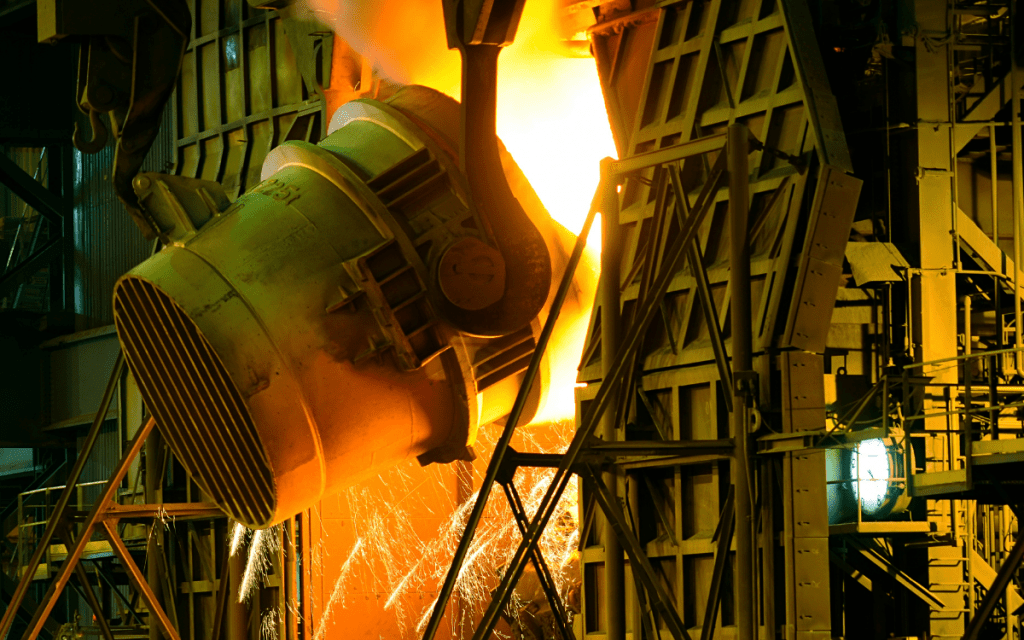
- The global price of iron ore decreases gradually to USD 100 per tonne by 2030, due to increased supply and reduced demand from China, which is shifting to a more service-oriented economy.
- The global price of coal decreases gradually to USD 80 per tonne by 2030, due to increased use of renewable energy sources and reduced demand from steel and power sectors.
- The government policies regarding taxes, subsidies, regulations, and import duties on steel products evolve in favor of the steel industry and consumers, reflecting the strategic importance and social benefits of steel products.
Based on these assumptions, we estimate that the steel price in Pakistan will increase steadily from PKR 280,000 (USD 1,680) per ton in March 2024 to PKR 400,000 (USD 2,667) per ton in March 2030. This represents an increase of about 43% over six years.
The main factors
That will drive the increase in the steel price in Pakistan are:
- The growing demand for steel products from various sectors such as construction, infrastructure, automotive, engineering, etc., as the economy grows and urbanizes at a fast pace.
- The appreciating exchange rate of the Pakistani rupee against the US dollar, which will increase the purchasing power and demand for imported steel products.
The main factors that will moderate the increase in the steel price in Pakistan are:
- The decreasing cost of production and imports of steel products due to lower prices of raw materials and energy.
- The favorable government policies regarding taxes, subsidies, regulations, and import duties on steel products, which will reduce the cost and increase the availability of steel products.
Conclusion
Steel is one of the most important materials for Pakistan’s economy and society, as it is widely used for various applications such as construction, infrastructure, automotive, engineering, etc. However, the steel price in Pakistan is not stable and predictable, as it depends on many factors that influence the cost of production and supply of steel products.
In this article, we have provided the latest information on the steel price per ton in Pakistan and its implications for various stakeholders. We have analyzed the historical trends, current situation, and future outlook of the steel price in Pakistan using data from reliable sources. We have also discussed the opportunities and challenges for the steel industry and consumers in Pakistan based on the expected price movements.
Related Article: isl steel pakistan price list 2023: A Comprehensive Guide
